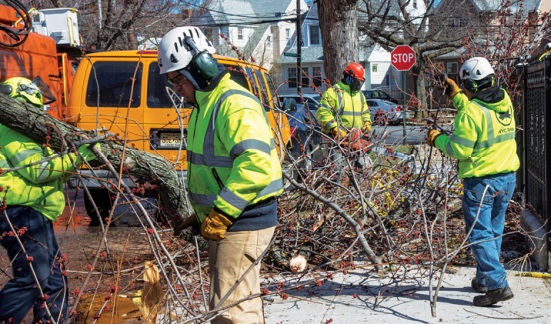Public Employee Press
Locals lead cleanup after four nor’easters hit NYC
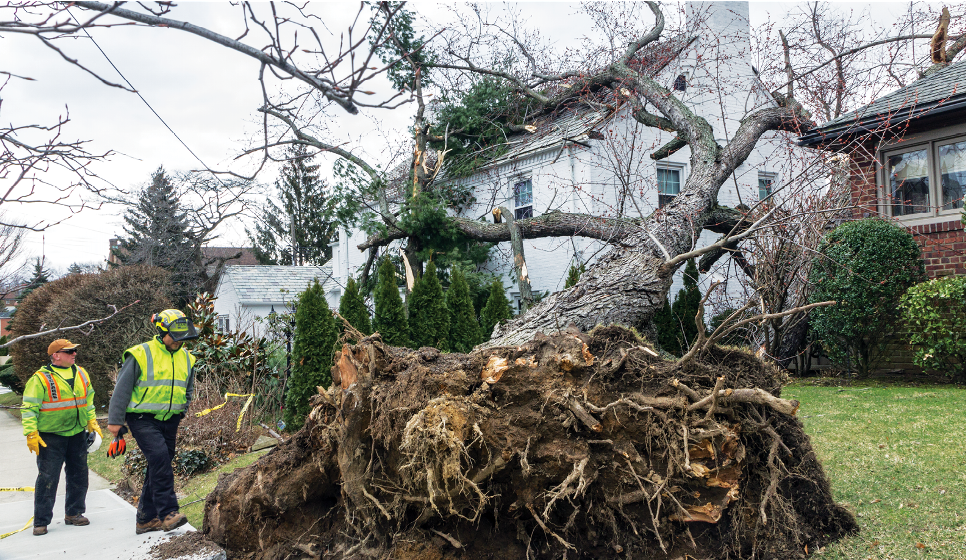
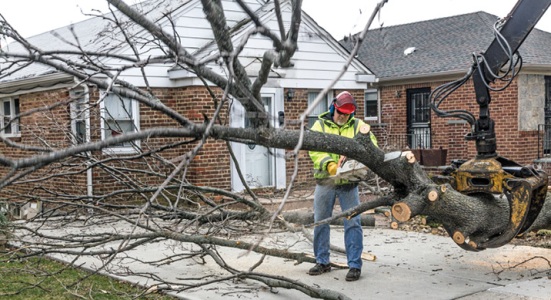
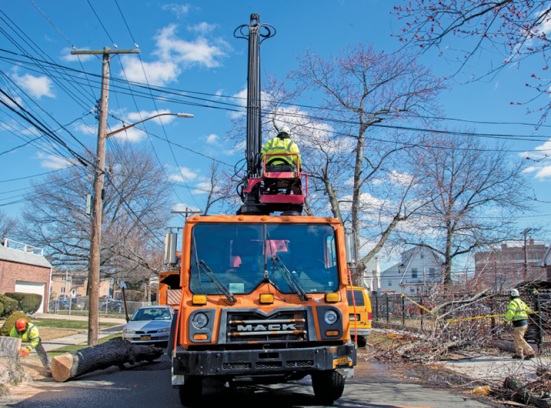 By DIANE S. WILLIAMS
By DIANE S. WILLIAMS
Thunder snow, bomb cyclones and blizzards– three massive snowstorms struck New York and the eastern seaboard within a 10-day span, and a fourth storm struck during the month of March. DC 37 members in several locals responded with Climbers and Pruners of Local 1506 and their Parks Supervisors in Local 1508 leading the city’s emergency cleanup.
The Nor’easters dumped heavy snow mixed with thunder and lighting, rain, and slush with powerful 40- to 90-mile-per-hour winds that nearly paralyzed a half dozen states. The city is seeing an uptick in widespread, severe storms that are attributed to climate change.
Riley, the first Nor’easter, pulled down older trees — and powerlines — in Southeast Queens. The Dept. of Parks and Recreation disbursed its tree-cutting Delta Force of Climbers and Pruners in a race against time to remove fallen trees and debris before the second storm hit New York City five days later.
“It’s all hands on deck when we respond to tree disasters,” said Parks Supervisors Local 1508 President Mike Zeno, who works out of the Parks Forestry in Queens. “Whenever there’s a tree problem, Fire, Police and Sanitation call on us to do what they cannot: We clear away fallen trees and debris. When it comes to trees, no one does what we do.”
Whenever natural disasters and emergencies involving trees threaten New Yorkers, the city relies on Climbers and Pruners and their Supervisors and Associate Parks Service Workers in Local 983 to clean up and clear away fallen trees, broken branches and timber to make way for other emergency response teams of Firefighters, Police and Sanitation workers.
Soft grounds and high March winds dragged down trees. Heavy branches tore down power lines. Local 1549 members in New York’s 311 and 911 call centers fielded calls that reported some 3,000 downed trees and power outages from Coop City to parts of Staten Island.
Removing safety hazards
To clean up Queens Forestry assigned numerous Parks crews of about five men and women armed with physical strength, knowledge and equipment like oversized chainsaws, cherry pickers, log loaders with gigantic claws and high-powered wood chippers. Block by block they removed felled trees so emergency vehicles could pass.
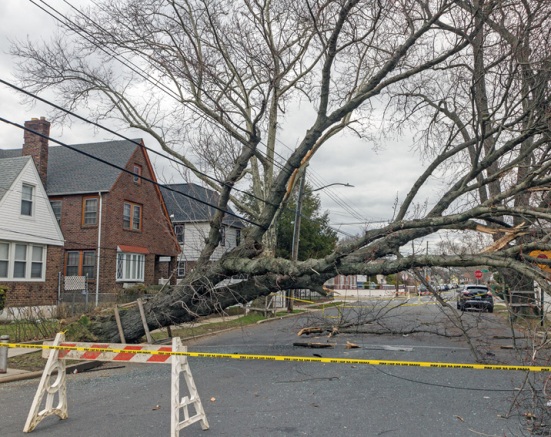 “Today people are concerned with conserving trees and saving their homes so it’s a definite skill to take a tree down without causing further damage,” said Ibn Mann, president of Local 1506.
“Today people are concerned with conserving trees and saving their homes so it’s a definite skill to take a tree down without causing further damage,” said Ibn Mann, president of Local 1506.
“We are working 12 to 14 hours a day in a concerted effort to remove safety hazards. Cutting and cleanup keeps everyone working at their busiest.”
Climbers and Pruners under direction of their Supervisors cut down and carry dead limbs and lifted trees that had toppled into yards and onto rooftops crushing houses and vehicles.
Last fall, Mann and a crew volunteered to help Puerto Rico clear hundreds of fallen trees and debris after Hurricane Maria ripped through the island and destroyed parts of historic Old San Juan. Their work saved architectural gems and cleared roads to allow people to access to water, food and other essentials.
New York City depended on its unionized Parks Forestry workforce to clean up after Superstorm Sandy in 2012, and the microbursts, tornados and cyclones that struck in 2010.
Local leaders said Parks unionized arborist crews do not earn differential pay for operating heavy-duty equipment. They often are the last workers to be approved for overtime pay in emergencies, Zeno said. “Fire, Police and Sanitation are placed on call in the days leading to an emergency situation, where Climbers, Pruners and their Supervisors, who are not classified as first responders, are not,” he said.
“Private crews may earn upwards of $5,000 a day for emergency tree removal,” Mann said. “Local 1506 members earn far less and complete more work.”
“In the eyes of the city we are not classified as first responders but we should be,” Zeno and Mann explained adding that reclassification would allow more avenues for funding to service the public more efficiently. Zeno and Mann are currently meeting with Parks management to request first responder classification.




